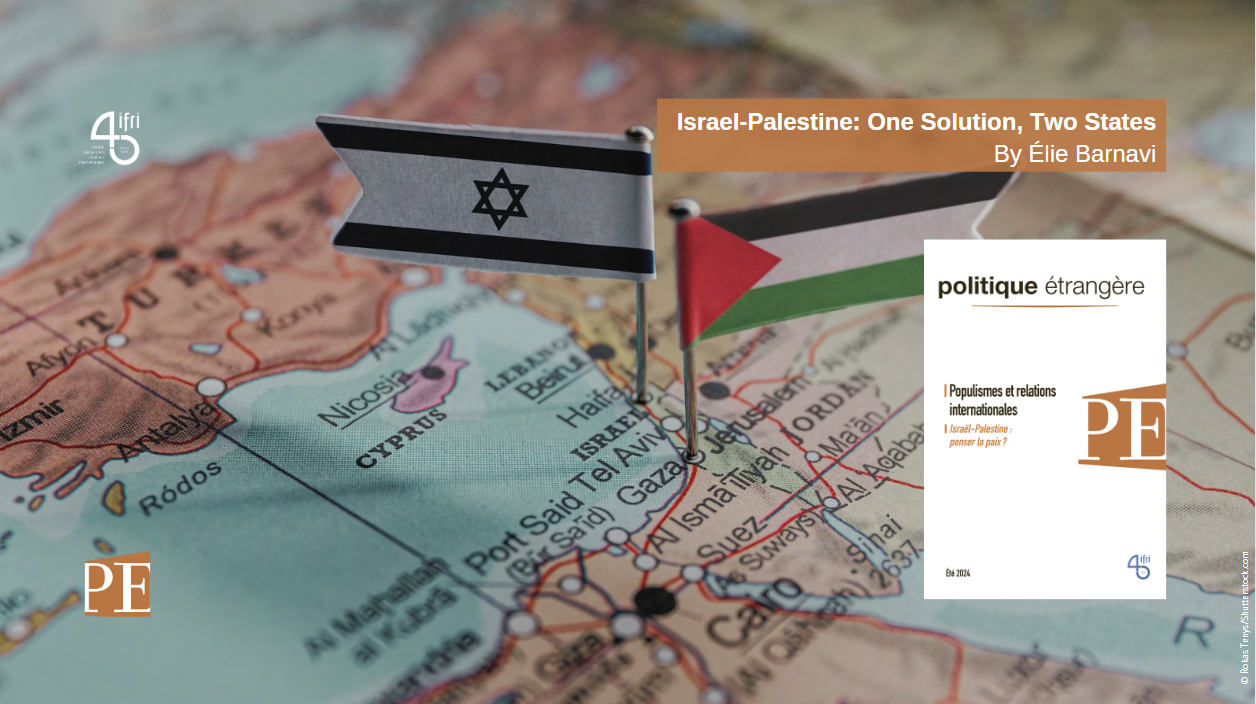Israel-Palestine: One Solution, Two States
First proposed in 1936, the two-state solution has got lost over the course of several Israeli-Arab wars, colonization, the failure of the Oslo Accords, and the strategies of Israeli governments seeking rapprochement with certain Arab regimes. But it is currently the only imaginable solution. The numerous obstacles in its path could be overcome if the United States and its allies decided to impose it on the Israelis and Palestinians in opposition to their short-term visions.

Historian, essayist, former Israeli ambassador to France, Élie Barnavi headed the Center for International Studies at Tel Aviv University and is the co-founder of the Museum of Europe in Brussels.
Article published dans Politique étrangère, Vol. 89, No. 2, Summer 2024.

Available in:
Regions and themes
Share
Related centers and programs
Discover our other research centers and programsFind out more
Discover all our analysesRussia, the Palestinians and Gaza: Adjustments after October 7th
The Soviet Union (USSR), and subsequently the Russian Federation as its internationally recognized legal successor, has consistently sought to play a visible role in efforts to resolve the Israeli-Palestinian conflict.
Canada’s Recognition of a Palestinian State: What Consequences on its Foreign Policy Toward Palestine?
On September 21, 2025, Canada became the 148th of 157 countries to recognize Palestine as a state. It did this with the United Kingdom (UK) and Australia, defying the United States (US) and Israeli opposition.
How to Jumpstart Economic Recovery in Syria? The role of syrian entrepreneurs in Turkey
This report examines the potential role of Syrian-partnered companies operating in Türkiye in supporting economic recovery and reconstruction efforts in Syria. Based on data collected through field research and surveys conducted by the Economic Policy Research Foundation of Türkiye (TEPAV), the report provides an overview of the business characteristics, sectoral distribution, and cross-border economic activities of Syrian entrepreneurs. The report explores how this business activity could contribute to restoring supply chains, stimulating local production, and generating employment.
Indonesia and the Palestinian Cause
During his inaugural presidential speech on October 20, 2024, Indonesia’s incumbent president, Prabowo Subianto, iterated certain principles central to the philosophical foundation of the Indonesian nation. He noted Indonesia’s longstanding foreign policy of non-alignment or “bebas dan aktif” (free and active) and its aversion to military pacts.










